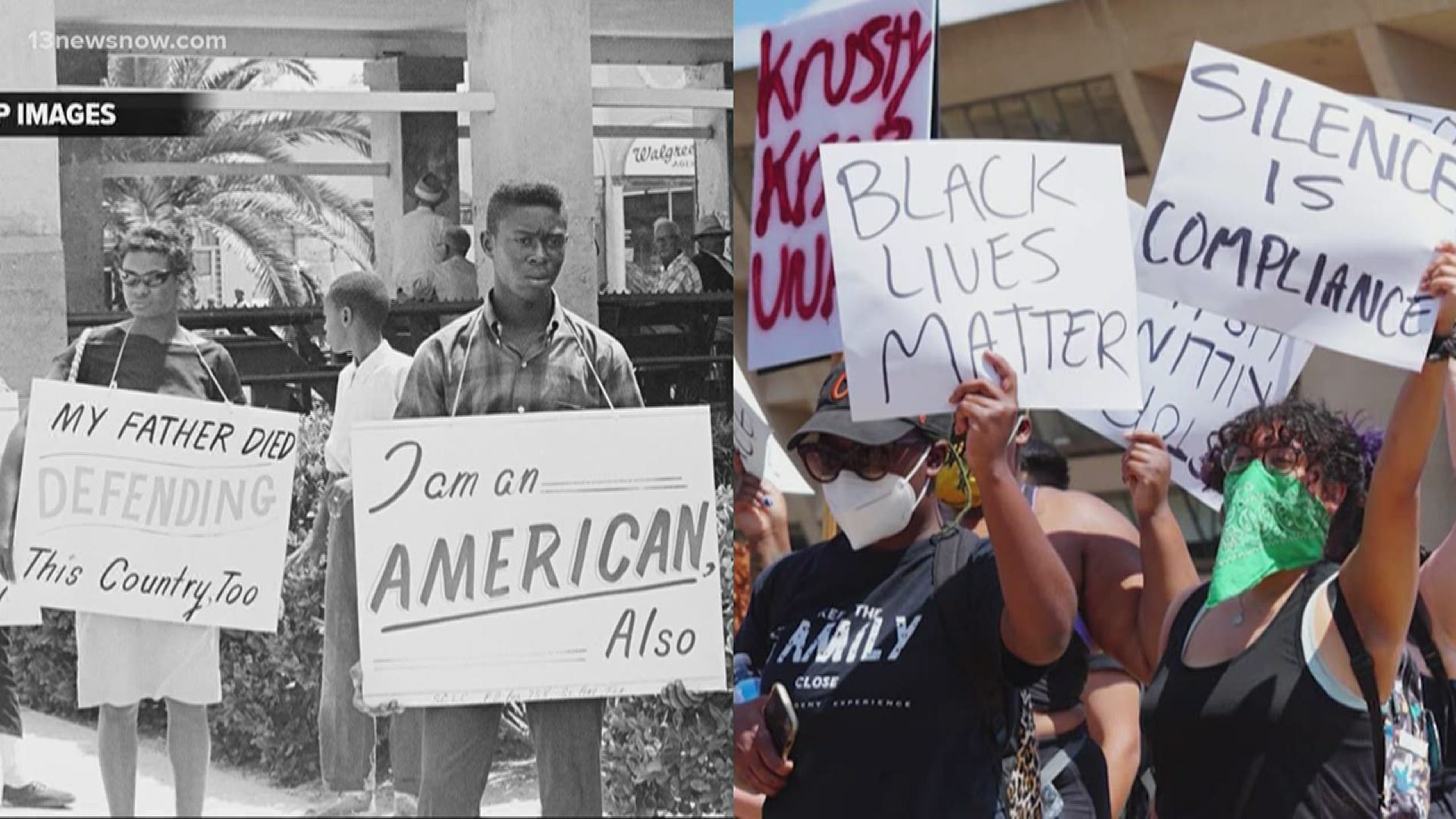NORFOLK, Va. — Across the country and throughout the world, calls for change following the death of George Floyd by police are still going strong after a week of protests.
Dr. Narketta Sparkman-Key, a professor of human services at Old Dominion University and a researcher on vulnerable populations, says history can teach us a lot about what’s happening today.
“Protests throughout our history have meant that the people are no longer willing to accept the things that are really horrible in our country,” said Sparkman-Key. “They’re tired and they don’t know what else to create change and bringing people together to protest for change is a good way to do it.”
She said the Civil Rights Movement of the 1950s and 1960s can teach us a lot about the calls for justice happening today.
“The message is still the same as the civil rights era. They just want fair treatment for black people. They are trying to save lives,” said Sparkman-Key.
Decades apart, there are striking similarities between protests during the Civil Rights Movement and 2020.
“The similarity is that we’re marching,” said Sparkman-Key. “If you look at pictures from the Civil Rights Movement, you see so many people, and it’s not just black people out there marching, it’s all nationalities coming together to say, 'Enough is enough.'”
The protests nearly 60 years ago led to significant changes: the Civil Rights Act of 1957, the Civil Rights Act of 1964, the desegregation of schools, and the Fair Housing Act of 1968. The list goes on.
“Changes have come, but I don’t know if change happens immediately after the protest,” said Sparkman-Key. “I don’t know if the change that we want today is going to be something immediately. Some of the things that are engrained in procedure, in police departments, are going to take more time to change... but I do think that protests wake people up to see that the change is very much needed.”
With no sign of protests fading after a week, Sparkman-Key said the issues uniting people to protest extend far beyond what happened to George Floyd.

